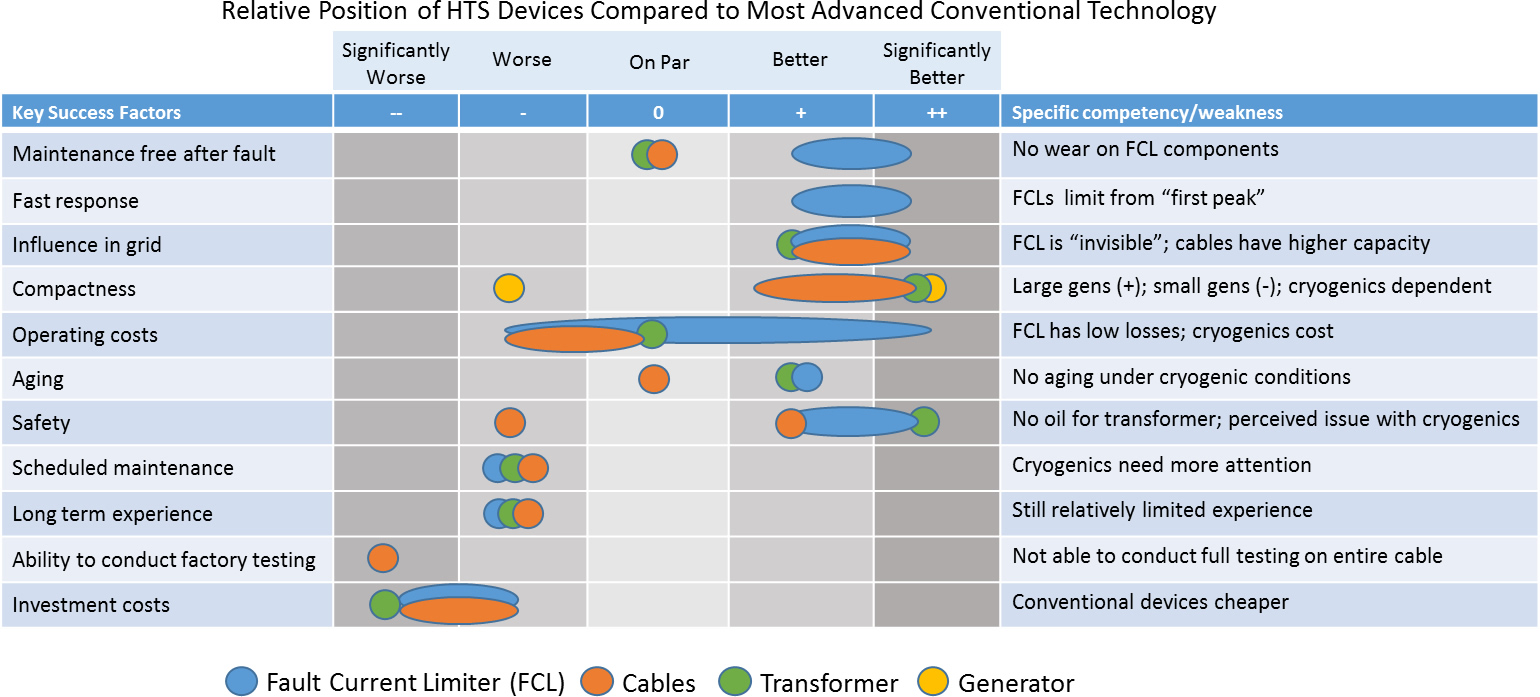Benefits
Superconductor devices do not simply provide incremental improvements over conventional technologies; they provide unique solutions to challenges that cannot be achieved otherwise. Examples of electric power applications that provide these unique solutions include superconducting fault current limiters (SFCLs), generators for off‐shore wind turbines, and high capacity power cables.

One type of HTS cable carries the same amount of power as 27 conventional cables. Courtesy of Oak Ridge National Laboratory.
The graphic below shows qualitatively the relative position of HTS based devices compared to the most advanced conventional technology that exists on the electric grid. HTS based cables, fault current limiters, generators and transformers are analyzed against a number of key success factors. The elongated shapes represent a varied response regarding the relative position. For instance, some data collected shows that operating costs for SFCLs were worse than conventional technologies while other data shows significantly better costs depending on the application.

